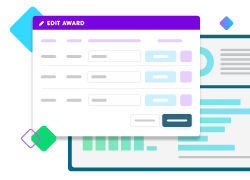Due Diligence Best Practices for Grantmakers

Grantmaking is the heart of the private foundation industry and is often the largest expenditure for a foundation. With grant-giving in the billions of dollars annually, grant disbursements warrant oversight and review. Due diligence has the potential to provide insight into critical attributes and the level of alignment between the foundation’s mission and the goals of the grantee.
Getting Started: Information Grantmakers Need
You need to understand the financial and organizational health of the grantee prior to making the grant. Here is a list of key information private foundations should, at a minimum, obtain when completing the due diligence process:
Board List
Request a list of Board members from the grantee. This list will help you ensure there are no conflicts of interest and to learn who at the organization has governance responsibilities.
Internal Revenue Service (IRS) Determination Letter
Ask for this document directly from the grantee to verify the organization is recognized by the IRS. An additional best practice is to verify the status by using the IRS Tax Exempt Organization Search feature (formerly known as the “Exempt Organizations Select Check Tool”) prior to the grant disbursement.
IRS Federal Form 990
Charitable organizations are required, with some exceptions, to file one of the following federal forms: Form 990, 990‐EZ, 990‐N, or 990‐PF. By obtaining this document, you as the grantmaker can quickly determine if a potential grantee is current and compliant with its required IRS filings.
Audited Financial Statements
Audited financial statements will provide the best evidence of a grantee’s financial health. Because an independent CPA has audited and opined on these records, the statements provide a level of confidence about the grantee’s financial health. This financial information can help you assess the potential grantee’s solvency and allow your foundation to perform other analyses on the financial health of the grantee.
If a potential grantee’s financial statements are not audited by an independent CPA, be sure to ask why. There could be a reasonable explanation, or it could be a big red flag. Regardless of the grantee’s response, take additional steps to ensure the grantee is providing accurate and reliable financial data.
Organizational Budget:
Make sure to get a copy of the grantee’s budget. This will help you determine the financial strategy the grantee has for its fiscal year and future. In addition, a budget will give you insight to any potential cash flow challenges the grantee may be facing. When reviewing the budget, be sure to ascertain:
- whether the grantee has prepared a realistic budget for its fiscal year
- whether the sources of potential revenue are reliable
- how reasonable the estimates of future expenses are
A foundation manager should also have a clear understanding of how the grantee would respond to any unexpected revenue shortfalls or cost overruns.
Best Practices for Grantmakers Performing Due Diligence
Throughout my 15 years of operational and organizational consulting, I have done hundreds of site visits and desk reviews. In that time, I have picked up a few best practices regarding nonprofit structure and governance.
When thinking about your grantee’s Board, it is important to understand the Board composition. See if the grantee has conducted a Board assessment recently. This assessment will help you and the grantee identify skills gaps on the Board of Directors and establish a plan for any training that may need to be conducted.
In addition to the documents you collected on the financial health of the organization, you also want to know who has financial oversight. One way to do this is to review the Board package from two to three recent Board meetings. That will quickly give you an overview of what financial reports the Board is receiving and reviewing. When reviewing the Board documentation, also find out how often the board meets and if there are term limits. See if you can locate their Conflict of Interest Policy to make sure they have internal controls should a problem arise.
Compliance Monitoring: What Does It Mean and How Do You Do It?
A grantmaker’s due diligence is not over once your foundation provides funds to the grantee. Compliance monitoring is a way to ensure that your grantees are in compliance with your grant. There are several ways you can monitor a grantee’s compliance based on your risk appetite and your capacity as an organization.
For low-risk grantees, we often see foundations conduct a desk review. This is a limited review of the grantee’s grant expenditures and grantmakers can conduct them remotely.
Moderate-risk grantees often require a desk visit and an on-site visit. You can conduct the site visit in-person or via video conferencing. We have found that site visits can give you valuable insight into the grantee and you can get a better sense of the organization, the internal controls they have in place, and more insight into the finance department and their skills and capacity.
For example, when conducting a site visit in Oakland, CA, a private foundation let us know that one area of concern they had with this particular grantee was late reporting. While we were out there on a site visit, we had time to sit down with the CFO and the finance team to gain a better understanding of why their reports were often late when reporting to the foundation. After a few discussions, we were able to assist this grantee with putting together a documented checklist by area and responsibility. The checklist made it much easier for the grantee to understand the foundation’s expectations and who on their team was responsible for making sure the information was accounted for. This may not have occurred during a desk review.
For your high-risk grantees, we recommended that grantmakers conduct a desk review, site visit, and follow-up reviews. These follow-ups will help you ensure that the grantee is addressing any issues that may have arisen during your last site visit or desk review.
Lastly, it is important to consider how you are tracking your grantee’s corrective action plans. Have a process in place that enables you to circle back to the grantee on various discrepancies you may have found during your previous review.
Due Diligence Means Better Decisions for Grantmakers
When you incorporate due diligence best practices into your grantmaking processes, you can be more confident that the grantees you partner with will align to your vision and mission. You make better decisions and can be more accountable to your funders.
Manage your entire grantmaking workflow, from online grant applications through payments
Find out how Blackbaud Grantmaking™ fits your organization.




